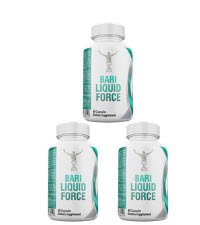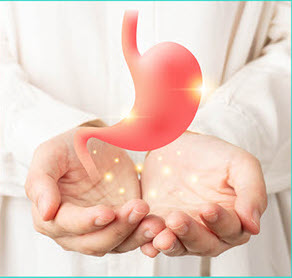
Requirements For Gastric Sleeve Surgery
Stomach sleeve surgery (typically described as sleeve gastrectomy) is among the most successful weight loss surgical treatments for people struggling with extreme obesity. The treatment minimizes stomach size to help you take in food less quickly and feel full faster, supplying effective weight loss outcomes.
Before undergoing this operation, certain criteria need to be fulfilled in regards to being physically and mentally prepared to make necessary way of life changes after surgical treatment.
Credentials For A Gastric Sleeve
If you are overweight or overweight, your doctor may recommend stomach sleeve surgery to aid with weight reduction by limiting just how much food can be eaten at once. It can likewise help those experiencing health problems connected to weight problems such as high blood pressure or cardiovascular disease.
Laparoscopic surgeries use little incisions for these treatments, utilizing little cameras and long, narrow tools to access the stomach through little cuts and create a sleeve of abdominal skin.
Your physician administers general anesthesia so you are entirely asleep for the treatment. Following surgery, medical staff monitor your condition in a healing space.
After having a sleeve gastrectomy, patients can expect to lose 50 to 90 pounds within 12 months by sticking to a strict diet that includes removing fatty foods, carbonated beverages, red meat and processed food from your diet plan along with eating smaller portions and taking bariatric vitamins and supplements.
For gastric sleeve procedures to be efficient, clients should be experiencing extreme weight problems (Class III). Your doctor will consider your BMI and any medical conditions to decide if you qualify.
If your doctor advises stomach sleeve surgical treatment, insurance coverage can usually help cover its expense. Your company might have eligibility requirements; so make sure to inquire.
To be eligible for a sleeve gastrectomy, your body mass index (BMI) need to be 40 or greater or 35 kg/m2, plus at least one condition related to obesity such as type 2 diabetes or high cholesterol. You'll have to commit to an intensive clinically supervised weight loss program for at least 3-7 successive months prior to surgery can take place.

Requirements For A Gastric Bypass
Gastric bypass surgery is a surgical approach designed to help individuals drop weight more effectively. This procedure is frequently used as a type of treatment for obese individuals who have actually failed to shed pounds through diet plan and workout alone, or those experiencing persistent diseases like diabetes, hypertension or heart problem.
Your cosmetic surgeon will develop a small stomach pouch by either stapling part of your stomach together or vertical banding, to limit how much food can be eaten at one time.
Your surgeon will then reroute the rest of your gastrointestinal system, so that less calories enter your system and contribute to weight-loss and continual weight management. This need to help you shed additional pounds without returning once again later.
Your cosmetic surgeon will utilize staples to form a brand-new stomach pouch in the upper portion of your stomach. Your small intestine will then be reconfigured so it gets in touch with this brand-new pouch.
Reduce how much food enters your body at the same time and feel complete much faster after each meal, and stop your stomach from producing excess acids and enzymes, which could otherwise trigger nausea and even trigger you to pass out.
Your medical professional will likewise sew the end of your intestine into the new stomach pouch so you can take in smaller parts at one time. They might recommend a liquid diet at first before progressing to solid foods.
After your surgical treatment, you should prepare to spend a minimum of a couple of days in health center. A breathing tube need to be in your trachea (windpipe), supplying oxygen and anesthetic gas throughout your surgical treatment. Once total, you will be complimentary to return house when ready.
Long Term Diet Plan After Gastric Sleeve Surgical Treatment
Undergoing stomach sleeve surgical treatment can be reliable at assisting you shed additional pounds, however needs making long-term changes to your diet plan. You need to eat smaller sized meals throughout the day while sticking to an regimented plan designed to ensure you get all of the necessary vitamins and nutrients.
Your stomach has shrunk significantly - approximately the size of an egg - making it essential to require time and chew carefully while consuming to facilitate simpler food digestion of food and decrease danger for pain and nausea.
Start by renewing your body with clear fluids such as water, dilute squash, organic and fruit tea (including fruit-flavored), and watered down juices consisting of electrolytes in order to stay hydrated and avoid dehydration.
Gradually include healthy liquids such as skimmed milk, smooth soups, Marmite and Bovril drinks, fruit juices and meal replacement beverage mixes into your diet plan. Be careful of sugary drinks, soft drinks and high fat options like cheese and chocolate which might pose threats.
When your stomach has actually adjusted to the brand-new texture of liquids, you can slowly introduce solid foods with a pureed consistency. This stage usually lasts around two weeks and includes consuming 4 to six little pureed meals each day.
At this stage, it is recommended to take in 2 to 2.5 litres of fluid each day in order to remain hydrated and avoid dehydration.

After surgical treatment, it is smart to take long-lasting multivitamin and mineral supplements; your surgeon ought to advise taking such items.
As part of your post-op diet, consider including foods like minced or wafer thin meats, fish, cauliflower cheese, cottage cheese, canned or soft fruit, prepared veggies and rice or pasta in a minimum of three healthy meals daily to keep energy levels and dietary consumption. It's important that at least 3 healthy meals be taken every day for optimum energy intake and to prevent energy drain.
Problems With Stomach Bypass
Roux-en-Y stomach coronary bypass is a surgery designed to alter how your stomach and small intestine absorb food, so that you take in fewer calories while feeling pleased more quickly.
Diet plan and exercise alone have actually not helped you shed undesirable weight; surgery might also be needed if there are serious health complications due to weight problems.
Stomach bypass can feature issues that consist of infection, blood clots, breathing issues and leakages in your gastrointestinal system (intestinal tracts). Some complications are more serious than others.
Peritonitis is among the most major problems following stomach coronary bypass and need to never be left untreated. This condition occurs when inflammation strikes your peritoneum (the smooth membrane that lines your stomach cavity), leading to infection of its smooth membrane that lines your abdominal area cavity.
" Dumping syndrome," or food discarding, takes place when strong parts of food enter your small intestine instead of being absorbed and can be very unpleasant - sometimes leading to discontinuing consuming entirely or needing healthcare facility care.
Discarding Syndrome signs typically consist of stomach pain, diarrhea and cramps that can usually be dealt with through diet plan changes or medication.
gastroesophageal reflux disease, commonly referred to as heartburn, is another side effect of gastric bypass surgery that typically arises. There has actually been much discussion over whether this condition gets worse after weight-loss surgery however up to 47% of patients report experiencing heartburn after this weight decrease treatment.
Deep Vein Thrombosis and Pulmonary Embolus, two possibly dangerous problems of bariatric surgical treatment, take place in around 2% of clients but they are seldom deadly. Their threat increases in clients who are overweight along with have actually had previous venous apoplexy episodes.
Cons To Stomach Sleeve
Stomach sleeve surgical treatment is one of the most successful and extensively embraced bariatric surgical treatments available, assisting thousands of people shed extra weight over the years. While safe and reliable weight-loss surgical treatments exist, such as gastric bypass and stomach sleeve treatments have some disadvantages that ought to be carefully thought about before making your decision on whether this treatment is right for you or not.
Gastric sleeve surgery can not be undone when finished; its impacts can not be reversed once cut and stapled into an anorexic tube shape called a sleeve. Patients undergoing stomach sleeve should prepare to make substantial lifestyle modifications and follow all dietary recommendations for life after undergoing this type of surgical treatment.
Another problem related to stomach sleeve surgical treatment is reflux (in which acid from the stomach moves upward into the esophagus), even after weight loss. Reflux can typically be treated using medication, however some sleeve clients may need bypass surgery to manage signs successfully.
Some patients can develop discarding syndrome, in which food passes too rapidly through the digestive system and results in diarrhea or throwing up. Less common than lots of may fear, this condition typically fixes itself with medication or diet plan changes.
Gastric Sleeve operations ought to not be carried out within 18 months after preparing to become pregnant, due to weight problems's threat for uterine cancer and preeclampsia which put both mom and coming infant at risk of complications during pregnancy.
A sleeve gastrectomy can assist in handling obesity-related lipid conditions, consisting of high cholesterol, triglyceride levels and fatty liver illness. The procedure works by decreasing fats and lipids stored within your body - thus helping control these conditions.
Bariatric doctors are specialized in managing weight loss and obesity-related conditions. They develop tailored treatment plans based on your unique needs, ensuring sustainable results while minimizing risks and promoting overall health
A bariatric doctor provides personalized weight loss solutions, including comprehensive treatment plans, nutritional counseling, and surgical recommendations when necessary. They also offer ongoing support to help patients maintain their health goals.
A reputable bariatric doctor should hold a medical degree, have completed specialized training in bariatrics, and be board-certified in obesity medicine. They should also have ample experience in the field and a proven track record of successful patient outcomes.